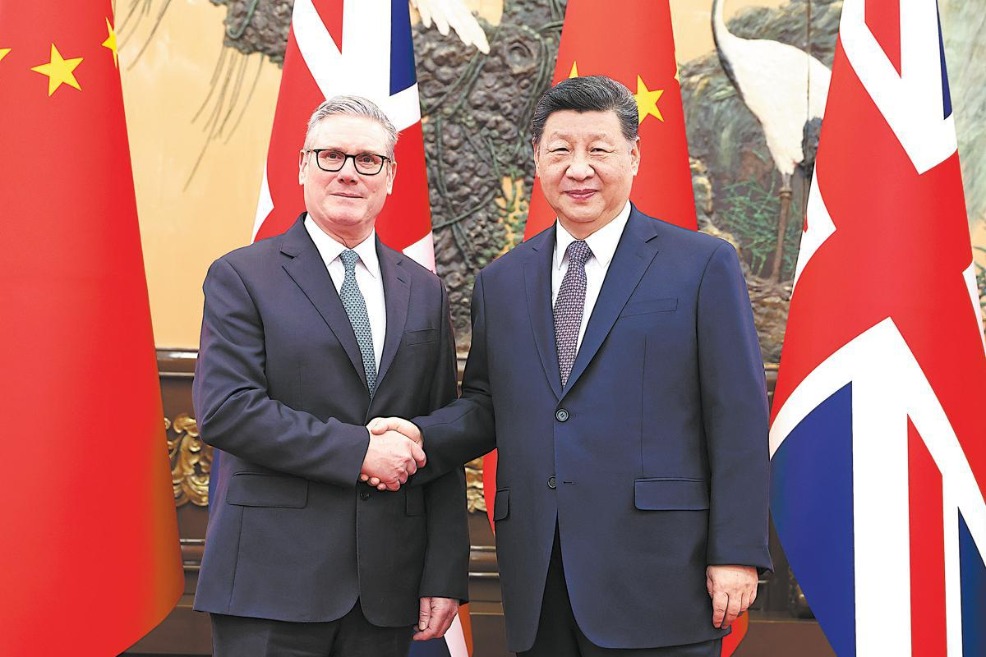Sound bites

 Chi Fulin, president of China Institute for Reform and Development
Chi Fulin, president of China Institute for Reform and Development
At present, service trade has become the focus of global free trade and the focus of China's efforts to advance high-quality development. The key to promoting high-level opening-up with a focus on trade in services lies in implementing the plan to "steadily expand institutional opening-up with regard to rules, regulations, management, and standards" put forward in the report to the 20th National Congress of the Communist Party of China. For example, we should accelerate the process of opening-up service sectors such as health, education, information and culture both internally and toward the outside world by fully implementing pre-establishment and post-establishment national treatment, proactively align with market rules, talent standards and development regulations of international advanced service industries and innovate institutions and mechanisms for free and convenient trade in services.
 John Ross, former director of London Economics and Business Policy Agency; senior research fellow, Chongyang Institute for Financial Studies of Renmin University of China
John Ross, former director of London Economics and Business Policy Agency; senior research fellow, Chongyang Institute for Financial Studies of Renmin University of China
Overall, China's development pattern is an enormous success. The country has now caught up with every major economy and every comparable economy in the world. With the transition to a high-income economy, the proportional economy, which is accounted for by capital investment, would be expected to rise.
 Daniel Gros, member of the Board of Centre for European Policy Studies; adviser to the European Parliament
Daniel Gros, member of the Board of Centre for European Policy Studies; adviser to the European Parliament
Trade is a "win-win" positive sum game. More open economies are more likely to put trade before geopolitics. If the United States and China cannot set aside geopolitical rivalry, they should at least agree tacitly to maintain the existing multilateral for trade with rest of the world.
 Tamas Hajba, OECD representative in China
Tamas Hajba, OECD representative in China
Foreign direct investment has long played an important role in driving the growth of China's economy. Even though the country is a major FDI destination, given to its vast market, high growth and the high quality of its infrastructure, its accumulated stock relative to GDP is still small. This means there is still room for improvement and more opportunities to expand and attract foreign capital.
 Yu Yongding, a member of the Chinese Academy of Social Sciences and researcher of the Institute of World Economics and Politics at CASS
Yu Yongding, a member of the Chinese Academy of Social Sciences and researcher of the Institute of World Economics and Politics at CASS
Although facing multiple difficulties, the Chinese economy still has fundamentals for a relatively high growth pace. As long as we remain committed to the State policy of reform and opening-up, coordinate the relations among various policies and objectives, and adhere to the implementation of expansionary macroeconomic policies, China will achieve the goal of stabilizing growth.
 Ma Jun, deputy secretary-general of the Academic Committee at the Development Research Center of the State Council
Ma Jun, deputy secretary-general of the Academic Committee at the Development Research Center of the State Council
Over the past decade, China has continuously improved its business environment, which has boosted enterprises' confidence and stimulated market vitality. The number of market entities registered in the country has risen from about 50 million in 2012 to 160 million by the end of June. More efforts should be made to further deepen reforms to create a law-based and internationalized business environment, as well as implement the innovation-driven development strategy to foster new technologies, new products, and new business formats.
Today's Top News
- Building shared skills for shared growth with BRI partners
- Xi chairs CPC leadership meeting to review report on work of state institutions, secretariat of Party Central Committee
- China's transport sector sees growth in 2025
- Politicizing business cooperation undermines shared interests
- High-profile visits signal pivot by EU
- Nation gears up for Spring Festival rush






























